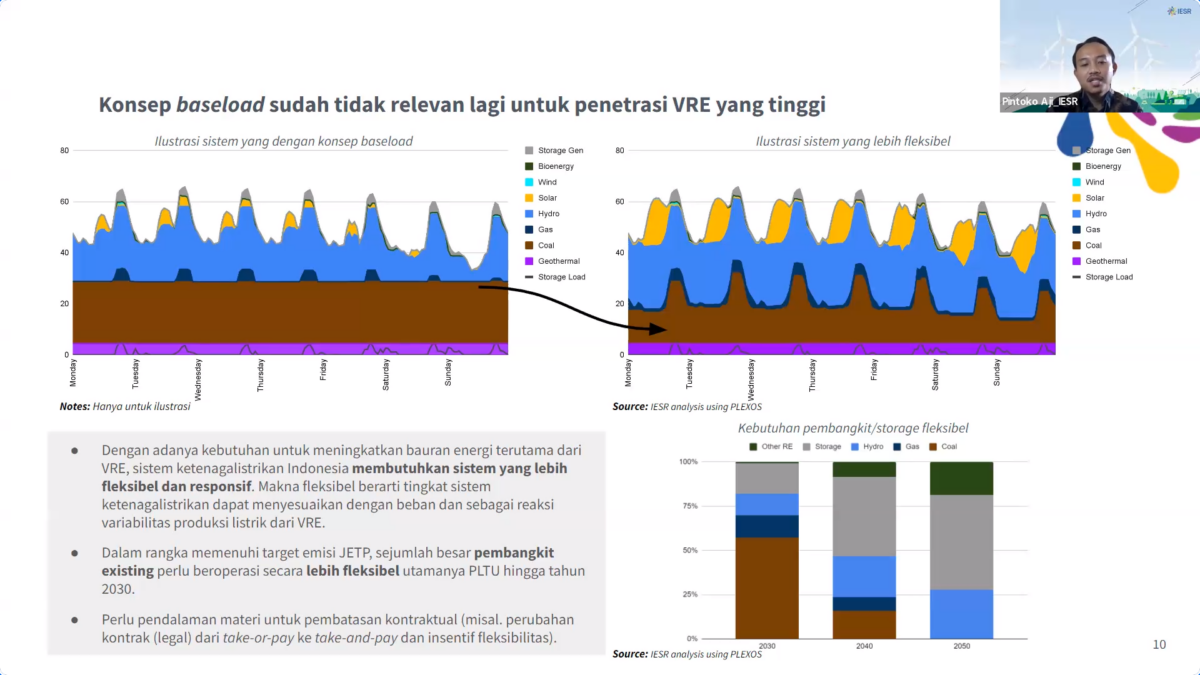Jakarta, 12 December 2023 – The energy transition journey in Indonesia in 2023 is entering a consolidation phase, which means that a number of policies that emerged in the 2020-2023 period need to be synchronized so that their implementation can accelerate steps towards one big goal, namely limiting the increase in earth’s temperature to level 1 .5 degrees Celsius aligned with the Paris Agreement pathway.
Fabby Tumiwa, Executive Director of the Institute for Essential Services Reform (IESR), in an online media briefing (12/12) held by IESR, stated that there are a number of enabling conditions that determine the success of the energy transition.
“There are 4 enabling conditions for a successful energy transition, namely, policy & regulatory framework, funding & investment support, technology application, as well as social impact & community support,” said Fabby.
Fabby also added that there have been a number of energy transition initiatives since 2020, such as RUPTL 2021, the Energy Transition Mechanism (ETM) agreement, and the Just Energy Transition Partnership (JETP). The existence of these various agreements is good considering that until 2020, there were no regulations regarding the energy transition, but the most important thing is the implementation of these various policies.
Pintoko Aji, IESR renewable energy analyst, said that the energy transition (in Indonesia) must be carried out comprehensively in all sectors, not limited to the power sector alone.
“The ultimate goal of this energy transition is to reduce emissions, so energy transition efforts must be comprehensive, not limited to the power sector alone. Industry and transportation, for example, also need to start working on it because currently there are not many concrete (actionable) policies in that sector,” said Pintoko.
Yunus Saefulhak, Head of the Energy Policy and Conference Facilitation Bureau, National Energy Council (DEN), in the same forum also explained that currently DEN is working on a revision of the National Energy Policy (Kebijakan Energi Nasional, KEN) to align various national targets with developments in international energy transition commitments and the strategy.
“This revision is urgent to carry out because energy policy needs to be in line with climate change policy, and a grand national energy strategy has also been prepared as input for KEN & RUEN updates,” said Yunus.
One of the KEN renewal points is that the new renewable energy mix in 2025 will reach 17 – 19 percent, and in 2060 it will reach 70-72 percent.
Various policy developments and adjusted targets need to be continuously monitored and guarded. The Institute for Essential Services Reform has monitored various developments in the Indonesian energy sector since 2017 and outlined them in a main report entitled Indonesia Energy Transition Outlook. In 2023, IESR will return and launch the Indonesia Energy Transition Outlook 2024 report, on December 15 2023. Follow the launch either in person (limited capacity) or online by registering at s.id/IETO2024

